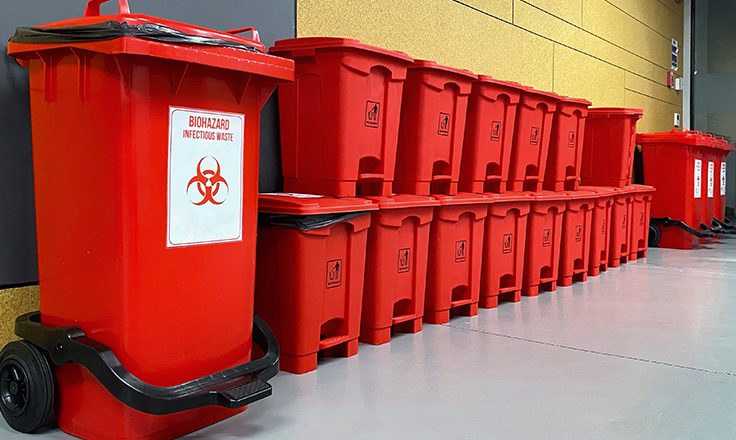Valuable information you need to know and be aware of regarding your medical waste regulations in your state.
Every state in the United States controls the regulations regarding medical waste that is generated in their state. The Medical Waste Regulatory Program (MWRP) is in charge of regulating medical waste for the state of Michigan. The (MWRP) main objective is to protect anyone who comes in contact with medical waste from exposure to the risk of injury, infection, or disease. We will learn more about the (MWRP) and what they do specifically to regulate medical waste in the state of Michigan and how they keep us safe.
The Objective of MWRP:
The MWRP’s purpose is for the prevention of public health risks that are associated with the exposure to untreated medical waste and through pollution prevention to preserve Michigan’s environment. The MRWP enforces the Michigan’s Medical Waste Regulatory Act (MWRA). This act includes regulations requiring proper handling, storage, treatment, and disposal of potentially infectious medical waste. The MWRA mandates how medical waste producing facilities must manage their medical waste from the point at which it is generated to its ultimate disposal point. If you’re a generator of medical waste in the state of Michigan you must register when you open for business and continue to do so every three years. Your state also has partners that help from other organizations. Two vital organizations that also help influence the state regulation is OSHA (Occupational Safety and Health Administration) and DOT (Department of Transportation) to maintain the safety and health of people and the environment with proper handling and disposing of medical waste.
Storage, Transport & Separation Requirements:
Not only are there regulations for generators of medical waste there also are regulations for disposal companies. If you store, transport, or separate any infectious waste you have to make sure you’re following the guidelines. You have to also make sure that you’re not holding any infectious waste for any long period of time. At least every 90 days you have to dispose of your waste and treat it. Most healthcare organizations hire a professional and licensed medical waste management company (Superior Medical Waste) to pick-up and dispose of the different types of waste that they generate. It is also important to know what to separate, what to label, and where to place your waste so only authorized personal can access it.
Closing:
State regulations are key to be aware of so you can make sure that your organization is staying compliant with the updated rules and laws. If you’re not aware or are not up to date. Make sure you’re reaching out to your medical waste disposal company for them to provide you the correct information. Keeping your office safe and compliant is the main objective.
